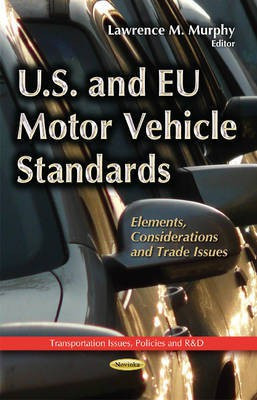U.S. & EU Motor Vehicle Standards(English, Paperback, unknown)
Quick Overview
Product Price Comparison
In March 2013, President Obama notified Congress that his Administration would seek a comprehensive Transatlantic Trade and Investment Partnership (TTIP) with the European Union (EU). In addition to addressing tariffs and other trade restrictions, the negotiations seek to reduce regulatory barriers to transatlantic commerce. Among the barriers under discussion are those affecting motor vehicles. Although many automakers build and sell cars in both regions, they must comply with very different safety, fuel economy, and emissions standards, as well as different regulatory processes. TTIP negotiators are seeking to identify ways to narrow the regulatory differences, potentially reducing costs and spurring additional trade in vehicles. U.S. and EU automakers support this initiative, which they see as furthering economic and vehicle design trends already under way. The complexity of complying with different greenhouse gas emissions regulations is also a factor in the industry's support. This book looks at ways in which TTIP might lead to a convergence of motor vehicle regulatory regimes on both sides of the Atlantic. These regimes govern three distinct aspects of vehicle manufacturing (safety, emissions, and fuel efficiency) and involve a number of U.S. and EU agencies.


